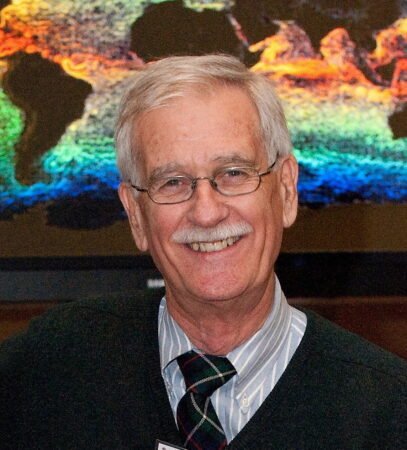Top Highlights
-
Earth scientist Compton J. Tucker has been elected to the National Academy of Sciences for nearly 50 years of pioneering research using satellites to track global vegetation changes from space.
-
His work started by identifying light wavelengths in photosynthesis and has evolved into assessing vegetation health and productivity, significantly impacting global monitoring efforts.
-
Tucker’s contributions have enabled critical applications such as drought monitoring, crop forecasting, and carbon storage inventory in regions like Africa’s drylands.
- In addition to his research, Tucker holds multiple prestigious awards and posts, reflecting his influential role in the scientific community and commitment to advancing Earth science.
NASA Earth Scientist Compton J. Tucker has earned election to the National Academy of Sciences. This honor recognizes his groundbreaking tools for tracking the planet’s changing vegetation from space. His work spans nearly 50 years at NASA’s Goddard Space Flight Center in Greenbelt, Maryland, where he continues to contribute as a visiting scientist after retiring in March.
Initially, Tucker focused on identifying light wavelengths absorbed by plants during photosynthesis. He later expanded his research to monitor vegetation’s health and productivity using satellites. “I’m honored and surprised,” Tucker said about his election. He credited the collaborative environment at NASA for his success. “Working at NASA is a team effort of science and discovery that’s fun and intellectually rewarding,” he added.
Tucker holds master’s and doctoral degrees from Colorado State University. His early research included analyzing spectrometer data of grassland ecosystems. In 1975, he joined NASA as a postdoctoral fellow. He modified NOAA meteorological satellites and improved the Landsat thematic mapper instrument.
In 1977, Tucker became a civil servant at NASA, focusing on radiometers. He progressed from handheld devices to using advanced satellite instruments. His research has made significant impacts on understanding vegetation, notably working with data from various satellite systems. One study alone mapped 10 billion individual trees across Africa, providing crucial insights into carbon storage.
“The impact of Compton Tucker’s work over the last half-century at Goddard is incredible,” said Dalia Kirschbaum, director of the Earth Sciences Division at NASA Goddard. Tucker’s methods have been vital for monitoring droughts, forecasting crop shortages, and even predicting disease outbreaks.
The National Academy of Sciences, proposed by Abraham Lincoln and established in 1863, advises the U.S. on science and technology. Each year, up to 120 new members are elected for distinguished achievements in research.
In addition to his role at Goddard, Tucker serves as an adjunct professor at the University of Maryland and a consulting scholar at the University of Pennsylvania’s University Museum. His accolades include the National Air and Space Collins Trophy and the Vega Medal, among others. Tucker’s work exemplifies the power of scientific collaboration in enhancing our understanding of the Earth, ultimately improving technology development and quality of life.
Expand Your Tech Knowledge
Stay informed on the revolutionary breakthroughs in Quantum Computing research.
Access comprehensive resources on technology by visiting Wikipedia.
SciV1

